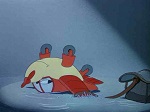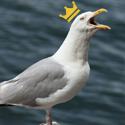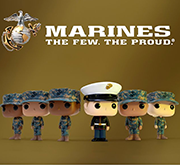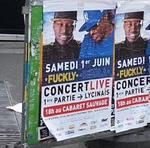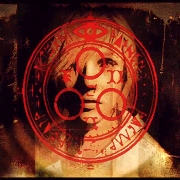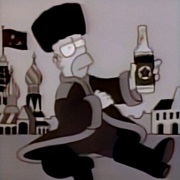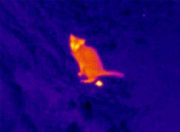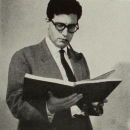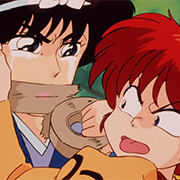|
Is that the Monty Python Palin? I know he did pursue many interests after the Python days.
|
|
|
|

|
| # ? May 15, 2024 19:22 |
|
FPyat posted:Is that the Monty Python Palin? I know he did pursue many interests after the Python days. Yup. He mentions just finishing up One Down, Five To Go in the prologue.
|
|
|
|
GoingPostal posted:I'm watching AMC's The Terror right now, and I've seen a few YouTube videos on the subject, but can anyone recommend any books? I've got Michael Palin's book on the Erebus right now from the library, any more recommendations? Audiobooks, as always, are a plus. I got shockingly far into the novel before I figured out that it was fiction.
|
|
|
|
GoingPostal posted:I'm watching AMC's The Terror right now, and I've seen a few YouTube videos on the subject, but can anyone recommend any books? I've got Michael Palin's book on the Erebus right now from the library, any more recommendations? Audiobooks, as always, are a plus. Anthony Brandt - The Man Who Ate His Boots I read this book recently and really enjoyed it. Goes into the history of the search for the Northwest Passage and all the exploratory expeditions, not just John Franklin's. Highly recommended.
|
|
|
|
GoingPostal posted:I'm watching AMC's The Terror right now, and I've seen a few YouTube videos on the subject, but can anyone recommend any books? I've got Michael Palin's book on the Erebus right now from the library, any more recommendations? Audiobooks, as always, are a plus. For a general book on 19th century Arctic exploration, I reccomend Michael Robinson's The Coldest Crucible: Arctic Exploration and American Culture. Obviously it's from the US perspective but he goes into how for decades the search for the Franklin expedition played into American Arctic efforts.
|
|
|
|
I'm reading (and loving) the MLK books recommended ITT. King and people he worked with talked a lot about Gandhi. I'd love to read a book about Gandhi. What's a good one?
|
|
|
|
GoingPostal posted:I'm watching AMC's The Terror right now, and I've seen a few YouTube videos on the subject, but can anyone recommend any books? I've got Michael Palin's book on the Erebus right now from the library, any more recommendations? Audiobooks, as always, are a plus. While it’s about the Antarctic instead, Alfred Lansing’s Endurance (re: the Shackleton expedition) would likely be right up your alley.
|
|
|
|
Kaiser Schnitzel posted:Any recommendations for a history of post-war/Cold War/post-cold war Britain? Someone more ideologically neutral, especially about the Thatcher-era, would be great. Mostly trying to better understand the domestic social/economical/political stuff like nationalising/privatising whole industries, the power and decline of trades unions, and the various iterations of the British welfare state during the period, and how the various political parties fit into that over time. I don't think these qualify as "ideologically neutral" and don't quite fit your time range but they aren't blatantly partisan and are well written: David Edgerton The Rise and Fall of the British Nation A Twentieth-Century History is most preoccupied with the immediate postwar period, but touches on the rise of new labour at the end. Heres a review: https://reviews.history.ac.uk/review/2307 and a podcast interview with him on the book from some leftists: https://play.acast.com/s/aufhebungabunga/aufhebungabunga.podbean.com%2F1200c393-ff5e-388b-a11c-224e3705b3d1 No Such Thing as Society: A History of Britain in the 1980s by Andy McSmith is a more journalistic account of the 80s: https://www.amazon.com/No-Such-Thing-Society-History/dp/1849019797/ref=tmm_pap_swatch_0?_encoding=UTF8&qid=&sr=
|
|
|
|
Any good books about the time between the pilgrims and the American rev war
|
|
|
|
Allan Kulikoff's From British Peasants to Colonial American Farmers - a good overview how access to land ownership transformed white identity in the colonies. Daniel Richter's Facing East From Indian Country - Looks at early colonial history from a Native perspective. Laurel Thatcher Ulrich's The Age of Homespun - uses material culture to talk about Native and women's issues. Russell Shorto's The Island at the Center of the World - a really well written history of the early story of Manhattan and Dutch New Amsterdam.
|
|
|
|
Sweeeet thank you
|
|
|
|
Kaiser Schnitzel posted:I realize that of course. When I’m learning about a new period I try to start with whatever ‘just the facts, ma’am’ broad history may exist and then explore more perspectives once I have some basic context. I know the thatcher era was incredibly divisive, and just trying to get more context than ‘she was satan/she was our savior’ You've gotten some push back against this already, but I still want to reiterate that this idea of "just the facts" is essentially contrary to what history (as a field of research) actually is. History isn't "facts", it's the construction of a narrative. That narrative isn't based on facts either, it's based on textual sources that themselves were narrative in nature. Even the driest official statistics are themselves part of a (government) narrative. There is no such thing as "unbiased" history, and a "just the facts" narrative is still a narrative, and it has an agenda. You definitely have the right idea though in wanting to read different perspectives and analyses, because that's how you become better informed and able to form your own opinion. The danger though is succumbing to the temptation to treat an ostensibly unbiased or apolitical middle ground as some sort of more "objective" truth, when the fact is that there is no such thing in history.
|
|
|
|
Gripweed posted:History books that start each chapter with the author talking about how they went to a place and talked to a person who is vaguely related to the topic of the chapter should have a big warning label on the front so everyone can clearly see that they belong in the garbage. This is a post about 1421 isn't it?
|
|
|
|
Shelby's Foote's Civil War series is extra fun when you day-dreamed through grade school and remember next to nothing about events. For instance, Grant's moment to shine in May 1864 before the Battle of the Wilderness. I finally got to see this legendary general in action at a pivotal moment! Well, that explains why there are 700 pages left in this final volume, as of mid-June 1864. 
|
|
|
|
Mokelumne Trekka posted:Shelby's Foote's Civil War series is extra fun when you day-dreamed through grade school and remember next to nothing about events. The way Grant and Meade differed and complimented each other was my second favorite part of that volume, the first was Foote's beautiful description of the South Carolinians pathetic bleating when Sherman turned his attention to them. Grant's public and private disposition during the Wilderness is also fascinating.
|
|
|
|
Looking for recommendations for Greek history from the Persian wars to the Roman conquest.
|
|
|
|
TheFluff posted:You've gotten some push back against this already, but I still want to reiterate that this idea of "just the facts" is essentially contrary to what history (as a field of research) actually is. History isn't "facts", it's the construction of a narrative. That narrative isn't based on facts either, it's based on textual sources that themselves were narrative in nature. Even the driest official statistics are themselves part of a (government) narrative. There is no such thing as "unbiased" history, and a "just the facts" narrative is still a narrative, and it has an agenda. This is a beautiful post and should be put on the wall of High School History classrooms.
|
|
|
|
Is there a decent single-volume book on Polish history? There are obv tons of books on that subject but is there one that really stands out?
|
|
|
|
Lawman 0 posted:This is a post about 1421 isn't it? The book that inspired it was Beloved Beasts by Michelle Nijhuis, but I've seen it before and it's always terrible. That gimmick works fine for a TV show, because you gotta have some kinda picture to put on the screen. But it's a book, I'm imagining all of it, I don't need to hear about your loving field trip.
|
|
|
|
enjoying David Stahel's writing on the Eastern Front of WW2 so far, particularly Operation Barbarossa and Germany's Defeat in the East and Kiev 1941: Hitler's Battle for Supremacy. he does a good job pointing out how much of the written histories seem to just be uncritically based on Nazi sources and memoirs, perpetuating the idea that Soviet victory was more a matter of Hitler's interference/the weather/anything other than determined Soviet resistance. He does a good job pushing the argument that Barbarossa was a doomed and foolish operation in light of Germany's economic/manpower limitations, especially by the summer of 1941. quote:Histories lauding the victorious progress of the Wehrmacht in the first two years of the conflict form a characteristic representation of the war. With unprecedented victories and comparatively bloodless battles, the temptation to over-estimate German strength has always been great. In the case of Barbarossa this tendency has been further aided by the poor standing of the Red Army following Stalin's purges26 and its chaotic reorganisation following its disastrous performance in the war against Finland (1939–40). This dipshit Stolfi's a professor emeritus at a naval postgraduate school in Monterey, of course.
|
|
|
|
Does anyone have a good history of the Indonesian maritime empires?
|
|
|
|
I recently read 1491 finally and very much enjoyed it. It really brought home the scale of cultural and civilizational loss created by the European conquest of the Americas, something that I feel is not highlighted enough yet despite attempts to revise curriculum. What are some other good books on pre-columbian history that people have read recently?
|
|
|
|
FishBulbia posted:I recently read 1491 finally and very much enjoyed it. It really brought home the scale of cultural and civilizational loss created by the European conquest of the Americas, something that I feel is not highlighted enough yet despite attempts to revise curriculum. What are some other good books on pre-columbian history that people have read recently? Not strictly about that, but you'll almost certainly enjoy The Dawn of Everything
|
|
|
|
Just chiming in to say that the Caro LBJ series is so loving good. About 1/4 through Master of the Senate, and going to be really sad once I’m current. Can anyone recommend any other presidential biographies of similar quality and depth? Generally prefer 20th century, but open to anything.
|
|
|
|
Does anyone know of any good books about the various coups/counter-coups and general political of post-imperial African states.
|
|
|
|
I can point you to multivolume bios for non-American heads of state, but not much for American presidents, asides from Edmund Morris' Theodore Roosevelt trilogy.
|
|
|
|
sbaldrick posted:Does anyone know of any good books about the various coups/counter-coups and general political of post-imperial African states. Martin Meredith's The Fate of Africa is a good post-colonial overview of the continent. I've heard Paul Nugent's work is good as well but haven't gotten around to him yet. As an introductory text related to the topic I would also recommend Walter Rodney's How Europe Underdeveloped Africa. MeatwadIsGod fucked around with this message at 22:49 on Aug 7, 2022 |
|
|
|
There any good books about the cold war
|
|
|
|
Blackshirts & Reds  But fr, if you find a good one NOT written by a Reaganite/Neocon, lmk.
|
|
|
|
worms butthole guy posted:There any good books about the cold war Odd Arne Westad's The Cold War: A World History is a good survey that I like because in the end he comes down hard on the side of "this whole thing was a colossal waste of human resources that made everyone in the entire world worse off than they otherwise would have been". I don't think it's a perfect book but I think it's probably the best recent one-volume history. His The Global Cold War is a much more in-depth look at superpower meddling in the Third World in the 70s and 80s which I also like, but it's a denser and more scholarly work whereas The Cold War was clearly written with non-academic audiences in mind.
|
|
|
|
Quarterroys posted:Just chiming in to say that the Caro LBJ series is so loving good. About 1/4 through Master of the Senate, and going to be really sad once I’m current. I haven’t read it, but I’ve had my eye on Dumas Malone’s six volume biography “Jefferson and his Time.”
|
|
|
|
Maybe check out David McCollough's Truman bio. I only read like the first quarter (I have too many books) but as someone from Truman's hometown and has lived in most of the places that's namedropped in the early sections of the book, gotta say that he and his whole family/community come off as stupid, racist, rear end in a top hat hicks. Like way worst than the Texan Hill Country folk in the LBJ book, who were mostly sympathetic. Truman world is more like a saccharine sweet Frank Capra story if all the characters talked like an unironic Nick Mullen bit. Like Harry will be writing a letter to his childhood sweetheart and future bride Bess, trying to woo her, and in the middle of it he'll just drop "Yea so anyways I can't stand orientals." My brother in Christ, you live on a farm in Grandview, it's 1% Asian in 2022, when tf have you ever even met one? No wonder you dropped the bomb.
|
|
|
|
vyelkin posted:Odd Arne Westad's The Cold War: A World History is a good survey that I like because in the end he comes down hard on the side of "this whole thing was a colossal waste of human resources that made everyone in the entire world worse off than they otherwise would have been". I don't think it's a perfect book but I think it's probably the best recent one-volume history. His The Global Cold War is a much more in-depth look at superpower meddling in the Third World in the 70s and 80s which I also like, but it's a denser and more scholarly work whereas The Cold War was clearly written with non-academic audiences in mind. Perfect thank you
|
|
|
|
vyelkin posted:Odd Arne Westad's The Cold War: A World History is a good survey that I like because in the end he comes down hard on the side of "this whole thing was a colossal waste of human resources that made everyone in the entire world worse off than they otherwise would have been". I don't think it's a perfect book but I think it's probably the best recent one-volume history. His The Global Cold War is a much more in-depth look at superpower meddling in the Third World in the 70s and 80s which I also like, but it's a denser and more scholarly work whereas The Cold War was clearly written with non-academic audiences in mind. I've heard John Lewis Gaddis's book recommended before and I loled. Minenfeld! fucked around with this message at 01:22 on Aug 8, 2022 |
|
|
|
Would anyone be able to point me towards books detailing the Nuremberg trials? I'm not sure where to start; I am interested in learning about the various delegations and the whole process of getting to the trials more than the trials themselves, but I don't mind reading about the actual proceedings.
|
|
|
|
Foreskin Problems posted:Would anyone be able to point me towards books detailing the Nuremberg trials? I'm not sure where to start; I am interested in learning about the various delegations and the whole process of getting to the trials more than the trials themselves, but I don't mind reading about the actual proceedings. I haven't read it yet but Francine Hirsch's new book Soviet Judgment at Nuremberg is supposed to be really good. As far as I know it's the first book to cover Nuremberg in a way that includes the Soviet perspective and therefore probably comes the closest to presenting a complete story of the trials (not my specialty, but apparently basically every previous book on Nuremberg was written without consulting Soviet sources and therefore paints an at best incomplete picture).
|
|
|
|
Minenfeld! posted:I've heard John Lewis Gaddis's book recommended before and I loled. Ah yes, How Reagan and the Pope won the cold war. Also seemed to imply the KGB shot the pope iirc.
|
|
|
|
Just finished Sabres of Paradise, a book about the Russian conquest of Chechnya and Daghestan. I came across it (possibly here?) in the context of it being a source book for Dune. A lot of the words from Dune (kanly, sietch, padishah, siridar, etc.) come straight from these events and this book. There are also sentences quoted here and there in Dune (none of this is intended to throw rocks at Dune, which I still enjoy). This was a great read. I enjoyed the prose and the window in to historical events I wasn't familiar with. I don't know how best to describe its style, but it's definitely one of the best books I've read so far this year. The language is excellent, the description of events and people and their choices is compelling, and I'm definitely keeping this one instead of donating it.
|
|
|
|
sbaldrick posted:Does anyone know of any good books about the various coups/counter-coups and general political of post-imperial African states. I recommend Kapuscinski’s The Emperor. It deals with the fall of Haile Selassie and it’s just an amazing read. He was lucky to be there fairly soon after the events described in the book and talk to relevant sources. His Angolan War book, Another Day of Life, is also very good.
|
|
|
|

|
| # ? May 15, 2024 19:22 |
|
Mantis42 posted:Maybe check out David McCollough's Truman bio. I only read like the first quarter (I have too many books) but as someone from Truman's hometown and has lived in most of the places that's namedropped in the early sections of the book, gotta say that he and his whole family/community come off as stupid, racist, rear end in a top hat hicks. Like way worst than the Texan Hill Country folk in the LBJ book, who were mostly sympathetic. Truman world is more like a saccharine sweet Frank Capra story if all the characters talked like an unironic Nick Mullen bit. Like Harry will be writing a letter to his childhood sweetheart and future bride Bess, trying to woo her, and in the middle of it he'll just drop "Yea so anyways I can't stand orientals." My brother in Christ, you live on a farm in Grandview, it's 1% Asian in 2022, when tf have you ever even met one? No wonder you dropped the bomb. Yeah Truman comes off hilariously bad in that book. A vitriolic racist with an inferiority complex who's a sanctimonious moralizer while still being proudly corrupt. His policies and presidency don't actually come off that bad, but personality-wise he's basically a loathesome cowardly bully the whole way through. Edmund Morris' Theodore Roosevelt biographies have the opposite issue where they can't help but valorize him a little, especially in the first two books. Still really good reads though.
|
|
|





